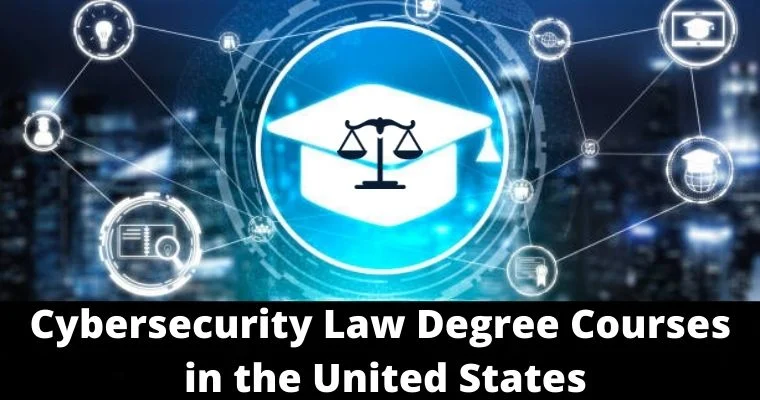Since we live in a world of ubiquitous cyberattacks, cybersecurity becomes essential to encompass the range of cyber threats, vulnerabilities, and attacks directed at systems, networks, or data.
That is why, nowadays, there is a greater need than ever before for cybersecurity professionals.
Therefore, taking this course will give you an in-depth understanding of cybersecurity and its impact on the modern world.
Throughout the course, you will learn about the Design of Secure Systems, the Goals of Cybersecurity, widespread attacks, buffer overflow, cryptography, cryptology types, designing a security system, case studies, etc.
Table of Contents
Reason for choosing the University of San Diego?
This Master of Science in Cyber Security Engineering (MS-CSE) program at the University of San Diego provides essential knowledge and skills training for information security professionals (public and private) who strive to protect the safety and prosperity of companies, communities, and nations.
Taking part in this on-campus or 100% online Master of Science in Cybersecurity Engineering (MS-CSE) program could be an excellent opportunity for data security and IT professionals (public or private) to gain essential technical knowledge and skills.
In addition to focusing on software and hardware security from an engineering standpoint, the information security graduate program is rigorously academic. Students have the option of taking classes entirely online or on campus to suit their schedules.
The Master of Science program in Cyber Security Engineering has the following characteristics:
The University of San Diego has collaborated with industry, government, and the military to develop a comprehensive cybersecurity training and skill development approach.
We have created a comprehensive cybersecurity training and skill development approach with military, government, and industry assistance.
Our instructors have decades of experience protecting national assets from the most dangerous cyber threats. We create a dynamic, highly relevant curriculum.
The most critical issues and threats that cybersecurity professionals face today focus on this intensive, in-depth course.
How does the CSE degree benefit its recipients?
- Those who already hold a bachelor’s degree and are currently employed in cybersecurity or are aspiring to work as security engineers are well suited to our Master’s degree program in Cyber Security Engineering, which is designed to meet their needs.
2. Engineers who wish to put their engineering expertise to good use by developing and deploying solutions to safeguard systems and networks and mitigate cybersecurity threats will find this program ideal.
3. This program will be helpful for any practitioner seeking a deep understanding of cyber-engineering concepts, theories, and strategies for threat mitigation.
The vast majority of applicants come from:
- Traditional educational paths
- Technology industries
- The military
- The intelligence community
- Private industry
- Government organizations
- Law
- Ecommerce
- Private and public safety agencies
Program Objectives:
- It is assembling an engineering knowledge and skill base to mitigate advanced persistent threats toward greater cybersecurity.
- Secure, trusted systems must be designed to protect against electronic security breaches that are making headlines and have caused extensive disruptions in businesses and governments, as well as immeasurable loss of intellectual property.
- The program prepares students to become innovative leaders in cybersecurity engineering by introducing cutting-edge technologies and creating tools and solutions.
- With the skills and knowledge gained during the program, graduates will become change agents, offering overall subject matter expertise and individualized technological solutions for addressing an organization’s unique set of risks and security vulnerabilities.
- University of San Diego’s commitment to professional development will provide students with access to national, regional, and local cybersecurity stakeholders.
- Leaders of the MS-CSE program don’t just focus on keeping the innovative curriculum relevant but also on assisting graduates with finding employment.
- They provide education and support for cybersecurity science and practice to benefit the public and private sectors and communities, and the nation.
- The United States is now at a critical juncture due to ongoing cyber threats and successful attacks; our cybersecurity engineering graduates are thus equipped to contribute to real-world, practical solutions to this challenge.
Admission Requirements:
- Graduation from an accredited university
2. Overall GPA for Bachelor’s degree should be 3.0 or higher
3. Suppose the overall GPA is Bachelor’s degree lower than 3.0. In that case, the candidates are recommended to take additional tests such as GRE, GMAT, Miller Analogies Test (MAT), or LSAT to enhance their application.
4. Applicants should have a TOEFL score of 120 or higher (if applicable)
5. Applicants should write a minimum of 500 words Statement of Purpose
6. Reference letters from former employers or two letters of recommendation
7. Previous work experience in information technology is required.
8. Laptops are required for all classes (on-campus format only)
Conclusion:
Cybersecurity will be the future since we are advancing in technology and our lives are connected to it and to make the world secure from cyber attacks.

